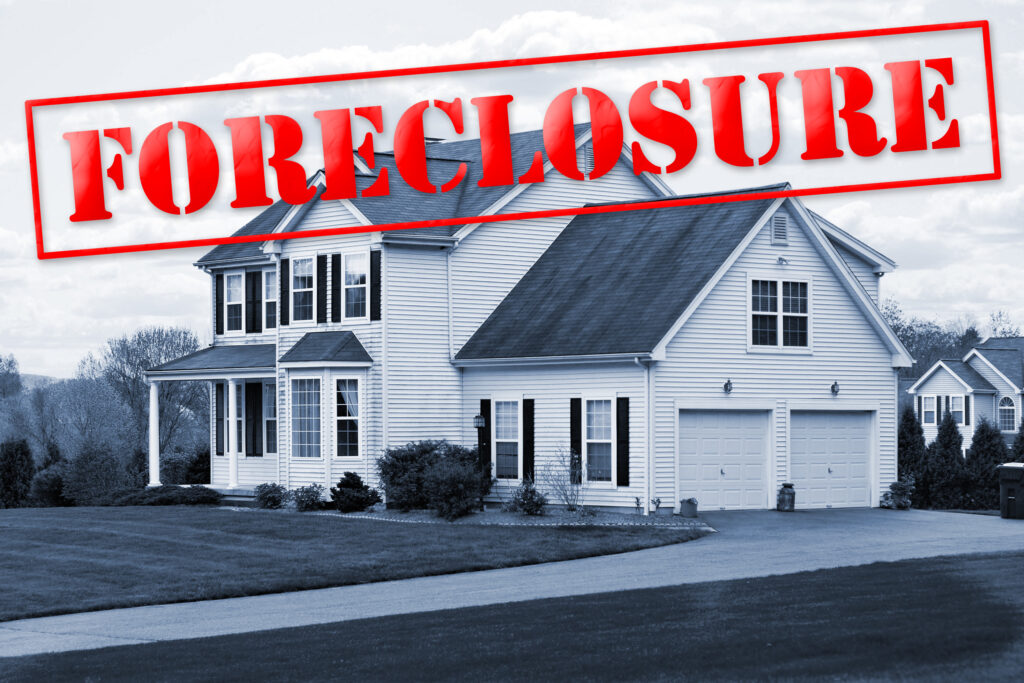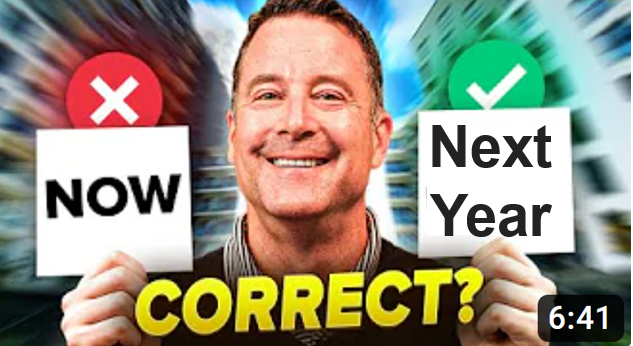Are you thinking about buying a home? In this blog we’ll share five more smart tips, including why you need to know about Days on Market (DOM) and $/SF, knowing the true value of a property, how to find the best deals, key things you need to know about short sales and foreclosures, and two key questions to ask yourself if you end up in a multiple offer situation. If you didn’t read our first 5 top tips, check out that post here.
Hi I’m Mike Regan. Before I got into real estate, I was a process improvement consultant and the author of two books on the subject. Then, as a top-producing real estate agent, I was blessed to personally sell over 750 homes in my 17-year career. Now, as the founder and CEO of Relevate Real Estate, I lead our team in continuous collaborative projects to improve the residential real estate process for our buyer and seller clients.
Tip #1 is…
1. Understand DOM and $/SF
DOM is “Days on Market.” This number is important because the longer the home has been on the market, the more likely the seller is to accept a lower offer. Reports printed by your agent from the Multiple Listing Service (MLS) have two kinds of DOM. The first, DOM, means “Listing Agreement Days on Market.” Listing agreements can be terminated and new agreements signed, agents can be fired and hired, and this number will reset to zero each time, so this number is meaningless.
CDOM, “Cumulative Days on Market” is more helpful, because it is the total number of days this property has been on the market. However, even this number will be reset to zero if the property is taken off the market for 30 days. In this case, you can ask your agent to run a report on the property address and you will see the complete MLS history, including all price reductions.
When you find a home you like, how do you know it is priced correctly? Look up the homes that have sold recently in the same subdivision and find those that are of comparable quality to the home you like, considering overall condition, upgrades, lot size, etc. Look at the $/SF, or “Sales Price per Square Foot” for each of these. The home you like should sell for similar $/SF.
Ask your agent to print out, and help you analyze a “Quick CMA” report for the properties in which you are interested. This report will automatically calculate DOM and $/SF for you. Pay no attention to SP/LP% (percentage of list price that a property sold for) on this report. This calculation is not helpful because list price depends upon random seller preference, and is based upon the latest list price, not the original list price of each property.
My second tip is to…
2. Understand how to determine the true value of a property
In the end, a home is worth whatever a buyer is willing to pay and the seller is willing to accept. So how do you figure that out? The best source to estimate the true market value of a property is an experienced, busy real estate agent, because they are working with tons of buyers and sellers in the current real estate market, and they have access to the best data (from the MLS). They will also correctly adjust for quality and feature differences.
The second best valuation source is an experienced, busy appraiser. They have access to the same data. However, they work for banks, not buyers and sellers. In addition, they are constrained by inflexible appraisal rules which do not allow them to consider some relevant information and comparable properties.
There are several other sources that are wildly inaccurate:
-
-
- Inexperienced real estate agents and appraisers can be way off. Just because they have a license doesn’t mean they have the experience.
- Websites like Zillow.com calculate market values without any input from human experience or judgment. They have no idea of the actual condition of the home, which obviously makes a big difference. Zillow does consider input provided by the homeowner, but that is the person selling the home, so that information can be significantly biased.
- The “value” found in the county tax records is not useful, because it is calculated en masse for the purposes of property tax assessment. Further, in most counties, this number is updated only once every four to eight years. It’s not unusual for properties to be worth $100,000 more or less than the tax value shown online.
-

My third tip is to…
3. Know how to find the best deals
To get the best deal, find a home that has all the “right things” wrong with it and fix them yourself. When I say the “right things” I mean issues that are easy to fix, but that will cause the home to sell for far less than it would, if they were fixed by the seller. I’m talking about worn out or stained carpet, out of date countertops, wallpaper, paint, fixtures, etc.

You will want to look for properties listed for lower $/SF in a subdivision where there are many homes selling for higher $/SF, which means the property in question could sell for that higher $/SF if you bring it up to snuff. Most of these are “as-is” properties, which means you still get a chance to inspect it thoroughly after putting it under contract, and can terminate if you do not like what you see.
Enlist your agent (and their inspector and contractor friends) to help make sure you do not get stuck with a lemon. In fact, the right agent will be able to quickly point out the improvement opportunities, how much it will cost to fix them including what colors and styles you should use, and what kind of profit you should be able to make in terms of instant appreciation.

The 4th tip is to…
4. Understand Short Sales and Foreclosures
The existence of these types of properties depends on what type of market you are in. When values are decreasing, Short Sales and Foreclosures will be numerous. When values are increased, these types of properties will be virtually non-existent.
A “short sale” is a situation in which the seller owes more on the home than it is worth, and does not have the funds to come up with the difference at closing. In most states, the seller must disclose that it is a short sale, and when an offer is made, both buyer and seller must sign a “Short Sale Addendum.” Once an offer is accepted by the seller, the listing agent submits it to the seller’s lender for approval. In rare circumstances this approval can happen quickly, but most often it takes several months, and even then the answer might be “no.”
So it is possible to get a good deal on a short sale, but the lower the offer, the less chance that the lender will approve it, because the bank wants to recover as much of their money as possible. If you want certainty about when (or if) you will be able to actually occupy the property, setting your heart on a short sale can be extremely frustrating. The listing agent will try to keep you waiting by giving you hopeful updates, but oftentimes the process drags on indefinitely.
Our advice is to make your offer on the short sale property. Knowing the addendum allows you to withdraw it at any time before it is accepted, and keep looking for another property. If your original offer gets accepted, you can celebrate. If you find a better property in the meantime, cancel your offer on the short sale property and buy the new one instead.
If a homeowner stops making mortgage payments, the bank will eventually foreclose the property, taking ownership and listing it for sale with a real estate agent. At the beginning, the bank will price the property high, hoping to recover the amount owed. Then the bank will drop the price substantially every few months until it sells.
Your best strategy is to understand the value of the property (which we covered earlier) and make offers at or below that value, regardless of the current list price. The bank will either accept the offer or say “no” (they very rarely counter). If they say “no,” just make another offer.
In these instances, you’re not dealing with an emotional homeowner, you’re dealing with a banker who doesn’t really care that much. Recently we submitted a $760,000 offer on a home listed at $850,000. The bank said “no.” We made another offer at $761,000, and the bank accepted it. You just need to get lucky by making the offer at the right time, when the bank has just reduced the list price, or is about to. Since you can’t know when that will happen, just keep making offers.

And finally, my 5th tip is to…
5. Ask Yourself Two Key Questions in a Competitive Situation
Being in a multiple offer situation, competing against another buyer, happens often in a “sellers market”, that is when there are many more buyers than sellers, and values are increasing. However, even in a buyers market, you could find yourself competing against another buyer for a low-priced property, like the Short Sales and Foreclosures we talked about earlier.
In most states, in a multiple offer situation, the listing agent is prohibited from disclosing details of any offers received, so they will ask both buyers to return with their “best and highest offer.” They will then choose one buyer with whom to negotiate a final agreement acceptable to the seller.
So here are some questions to ask yourself when considering your offer price:
-
- First, ask yourself, “If we lose this property at the offer price we are considering, will I regret not offering more?” If so, you might want to increase your offer.
- Conversely, ask yourself “If we get this property at the price we are considering, will we regret paying that much?” If so, consider decreasing your offer.
In a sellers market, when home prices are increasing rapidly, buyers often offer well over list prices, so asking these questions is crucial. In this kind of market, you may need to be very aggressive to win the home you want. Some experienced agents have ways to make offers that are contingent upon the next highest offer.
For example, your offer will automatically be $1000 or $5000 over the next highest offer. This approach can win in these situations while also potentially saving you a lot of cash. Discuss this strategy with your agent, as this type of offer requires a pre-written addendum prepared by an attorney and must be handled with a high degree of professionalism.
In a buyers market, the other buyer will rarely offer more than list price, so if you feel the property is a bargain, consider offering just a little over list price. In this kind of market, even $100 over list price can create goodwill with the seller and get the property for you. Finally, offering to close in less than 30 days may be very attractive to some sellers, especially if it is a bank-owned property.
CONCLUSION
So there you have it, our five top tips for buying a home that will help you have a great experience instead of being stressed out and sad. You may have other questions as well, for example, “How should I manage the timing of selling and buying at the same time?” or “What is the best way to make an offer on a home that’s obviously overpriced?” Jump into our Learning Center for articles about these and many other topics.
If you’re thinking about selling or buying or know someone else who is, we are never too busy for you or your referrals to your family, friends, neighbors, and co-workers. If you already know a Relevate agent just give them a call and they’ll be happy to help. If you don’t already have a relationship with one of our agents, or if you live in an area where Relevate isn’t (yet), just send an email to me at mike@relevate.life and I’ll be glad to introduce you to one of our best agents, or a great agent from our network in your area of the country.


